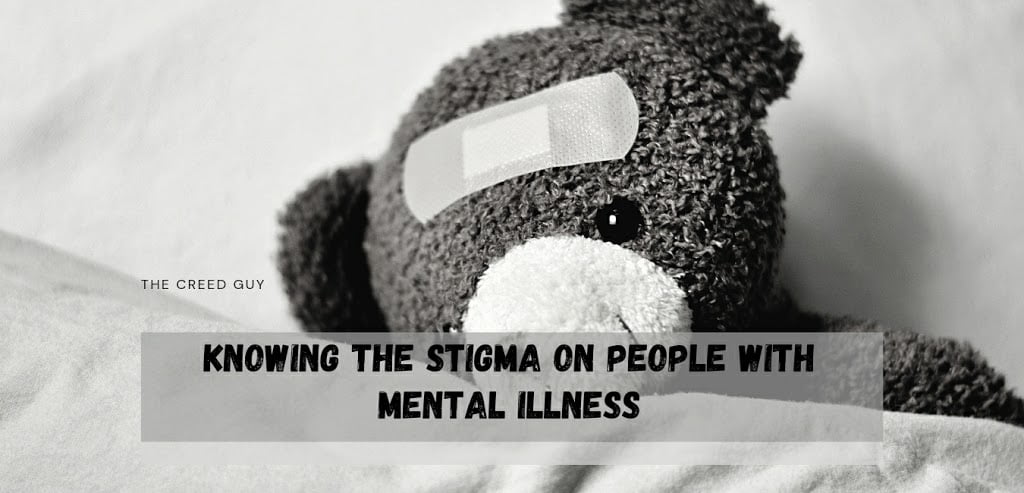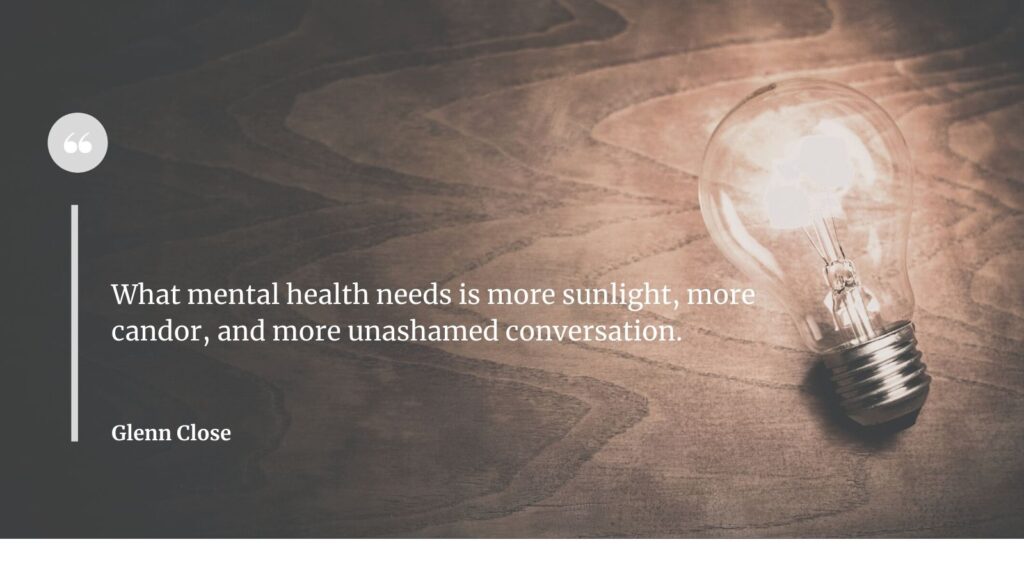
Knowing the stigma on people with mental illness
It is better to learn and knowing the stigma on people with mental illness. Because we might still judge those with mental disorders as ‘crazy‘ or ‘wrong‘ without knowing the real reason behind it. Many of us have this impression that they should be better avoided because they aren’t cool to be around or they are too hard to maintain an engagement with them.
The same approach should be used to perceive mental illness as physical disorder. We shouldn’t consider them as less important. Certainly, a psychological disorder should not be shown because of the person’s vulnerability.
The two separate states have been shown by our mind and body, and the mind is not important because it is not measurable. The reality, however, is that mind and body is interconnected.
We now know that physical illness can lead to mental health issues. Similarly, a psychiatric illness may result in the creation of physical health problems. And why should mental illness be viewed less seriously and less stigmatically?
It is a fallacy that people will get away from psychological illness or overreact when they speak about their condition. Mental wellbeing is subject to even more misconceptions and assumptions.
Fear of incurable mental illness or of abusive, foolish individuals perpetuates it. These misconceptions, damages and anxieties worsen the stigma in an unknown way.
There have been several causes and a great deal of stigma. I will try to write a few common explanations for the same thing.
Mental illness was not thought treatable until the advancement of medicine and medical research eminently treated these conditions. The fact that mental illnesses can be treated, particularly if early diagnosis and treatment are initiated, cannot be exaggerated.
It is considered indicative of weakness, morality, sin and a sense of conscience of the past. Be assured that, as with any other illness or disease, the human being responsible for it is either legitimate or desirable. People with mental health needs attention and assistance instead of labeling or harm. The person is not responsible for the disease of his mind.
Mental illness is not contagious, and whether you are near or in the surroundings of a person with a mental illness, you will not be mentally ill. Furthermore, in conjunction with psychological and social factors, the cause is genetic and hormonal variations in brain structure or interaction. It became without doubt difficult to describe the root of these diseases to the theory of neuroscience.
An impact or its condition couldn’t happen to me or us was quite mistaken, either of us or your family, and friend might experience the same. The prevalence is significant enough to make someone mentally ill once in a lifetime or witness something the same in a loved one.
The risk of mental illness has been noted. The belief that people with mental illness are unhealthy, aggressive, or cold-blooded continues to spread in society. This is a misconception that has stigmatized and hated mental illness.
In the world, people with mental disabilities are much less likely to be more dangerous than the average person. This party was physically and emotionally more affected than it was. You are much more likely to hurt yourself than injure others.
Mentally disabled persons are also deemed to be incompetent and unsuitable. However, it may be done entirely or in large part through the treatment of disability. Mentally ill individuals may be healed and active and emotionally, socially and in the family.
Mental health stigma should be normalized first. You should know, just as when you’re sick. Psychology should be taught and extend to young people early in their school life. We need to speak freely about mental health.
We and others need to educate ourselves. Words like ‘crazy’ or ‘mental’ should be avoided for those with mental illness. You have to deal with compassion. Many people mask the fact that they receive advice. Nothing’s scared of it. Talk honestly about it instead of as normal.
There are several ways to avoid psychiatric and mental disorder stigmatization as follows:
Concentrate on the other side of mental wellbeing
In the meaning of assaults, suicide or similar accidents of death, we usually hear about the mental palsy, conferring this very sinister tone which without hope is as shameless. No, this isn’t like that. Like physical illness, psychologically sick, as expected and over time, has the acceptable risk. We need to hear more optimism and mental illness stories to break through stigma.
We should speak loudly about this
We hide this in whispers which send a signal that is instantly disgraceful. When you talk about your psychiatric experience, you get conscious and you break out of disappointment.
Develop programs and workshops
We need more resources to support our people with stigma of mental illness. More services are required. As more community members become familiar with mental health as part of these programs in the community, this would help to break up misconceptions.

Knowing the stigma of people with mental illness can be ended in more detail to the public. It’s very easy to stigmatize people from afar. If you do not know the person, or if you have no contact with him or her, you can easily stigmatize the person if you never had a long conversation.
But you can’t make such a distinction between them and ‘us,’ if you’d like to find explanations as to why people are mentally ill, or what it means for people to live with multiple personality disorders and chat or be friends.
Disclaimer: All information is for information purposes only. The materials contained in this article shall not substitute clinical advice, diagnosis, medical care or therapy. Do not neglect psychological or medical advice or pause in obtaining advice or care because you have read something on this article. Please read our complete disclaimer.
You May Also Like

Vista Land Invests on the Future of Bulacan, A Strategic Economic Center and Cultural Destination in Southeast Asia
November 15, 2024
Grace Bondad Nicolas on Graceful Skin Essentials: Skincare for Every Filipino
February 13, 2021

